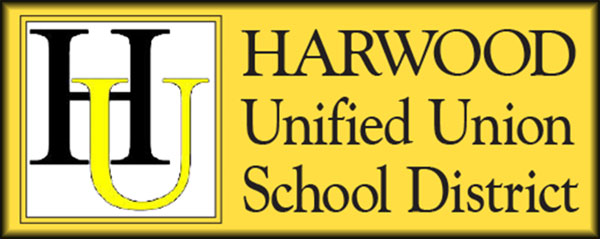“I might cry,” a member of the public told board members during public comment at the Harwood Unified Union School District (HUUSD) Board meeting on January 8.
This person was tearful over the thought of the board cutting the music program from elementary schools. During public comment, many other community members voiced their concerns over the latest budget draft, one that, if passed, would cut the fifth- and sixth-grade music programs as well as pre-K through fourth-grade foreign language.
Next to speak was Alicia Mason, Moretown, who urged the board not to make budget cuts at the expense of children’s education. “Don’t sacrifice education of our students for this. Cutting programming and closing schools is a short-term budgeting win that will lead to a long-term loss,” she said.
After that, a fifth- and sixth-grade band teacher spoke of the importance of saving the music program specifically. “The music program is one of the things that Harwood is known for. If we eliminate our fifth- and sixth-grade band groups, you’re literally cutting the legs off that program,” she said.
Finally, Rebecca Chartrand, a French teacher at Thatcher Brook Primary School, made a case for preserving foreign languages. “My husband and I moved here because of the broad programming at the schools. We feel strongly that second language learning at an early age is essential,” she said, going on to cite a list of scientific findings on the benefits of second language learning at an early age.
To the relief of the crowd, the board did not approve the budget draft presented at the meeting. Instead, they voted to direct the administration to draft three new budgets, none of which cut programming (music and foreign languages) from schools.
WHAT THE BOARD VOTED ON
Here’s exactly what the board voted on, and here’s why it’s important. First, the board voted yes to “ask the administrative team to develop a budget that is reduced by $300,000, as compared to the cuts of $908,714 that were presented in the January 8, 2020 board packet and that the proposal brought forward by the administration include no maintenance freeze, that the same funds be allocated to maintenance reserve, there would be no positions added to accommodate choice, provide equity to the greatest extent and no programming cuts.”
Let’s break that down: Originally, the board wanted to save $908,714. With this motion, they will get a new budget that saves $300,000 less. This is great for students, who get to enjoy full music and language programming, but it means taxpayers will pay more to accommodate these reduced savings.
Another important part of this motion is this part: “There would be no positions added to accommodate choice.” When the board says “no positions added to accommodate choice,” that means no IDC (intradistrict choice). Students cannot choose to attend Crossett Brook through IDC, because the board isn’t hiring people to accommodate that transition. Some people (board, administration and public included) reacted strongly to this.
From the board, Alexandra Thomsen, Waterbury, was worried about how this motion would affect the reputation of the board. “Not adding positions to accommodate choice is the same thing as freezing choice. If we do things like this, why would the public trust us as a board?”
Theresa Membrino, Fayston, said, “I agreed with this motion because I don’t want to cut programming. But switching our stance on IDC is inconsistent. We need to be more consistent.”
This led to the second motion passed by the board: “Direct admin to bring budget draft that is reduced by $300,000 as compared to cuts of $908,714 presented in current budget that includes no maintenance freeze, same funds be allocated to MR, provide equity to greatest extent, and no programming cuts.” This motion is the same as the previous motion, only it doesn’t prevent the administration from adding positions to accommodate choice. If this budget is approved at the next meeting, students will get their programming, and their choice to transfer to Crossett Brook will not be limited.
MERGING RECONSIDERED
Finally, after two hours of intense deliberation, it seemed that the board’s discussion was over. Members of the public trickled out of the library, their programming concerns quenched. Then, board member Garett MacCurtain, Duxbury, said, “Not to open an old can of worms, but is it too late to reconsider merging the middle schools?” A caustic chuckle could be heard from the few members of the public that were still around.
The board was on board with MacCurtain’s concern. Thomsen pulled out the metaphorical can-opener. “We had an opportunity that we lost. I would have a hard time supporting a budget that didn’t involve a merger of the middle school,” she said, referring to the middle school merger as a prime opportunity to save money.
Rosemarie White, Warren, seemed eager to discuss the merger again, having stated earlier in the meeting that she did not approve of the current budgeting position of the board, which now came down to “cutting programming or keeping property taxes affordable.” She continued, “The only way I would support the budget is if seventh- and eighth-graders are brought together.” White had voted against the last two motions.
Finally, a third motion was passed regarding a new draft for the school budget. The motion was “to direct the administration to bring a draft budget based on moving the HUMS seventh- and eighth-graders to CBMS for the 20-21 school year.” This motion put the possibility of merging middle schools next fall back on the table.
At the next school board meeting, at 6 p.m. on January 15, the board will decide which of these three budget drafts to approve.







